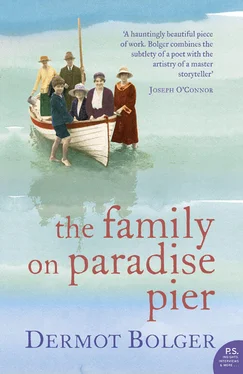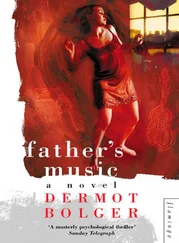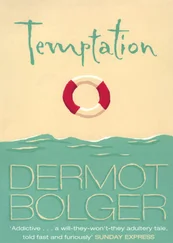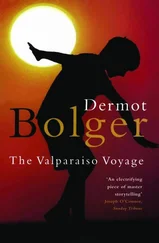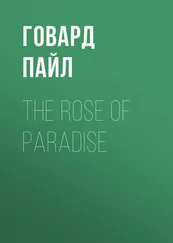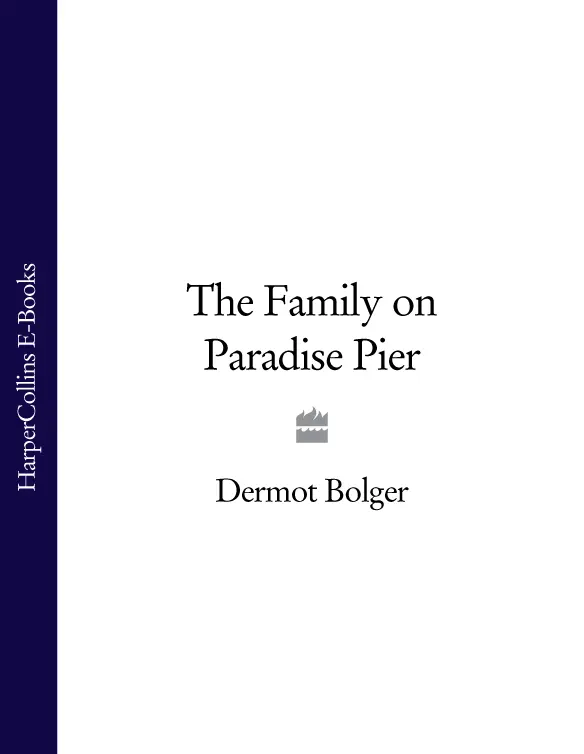
The Family on Paradise Pier
Dermot Bolger

For Donnacha and Diarmuid
Cover Page
Title Page The Family on Paradise Pier Dermot Bolger
Prologue 1941
PART ONE 1915–1935
ONE The Picnic
TWO The News
THREE Four Thousand Lamps
FOUR The Motor
FIVE The Boat
SIX The Docks
SEVEN The Exiles
EIGHT The Studio
NINE Not a Penny off the Pay
TEN The Turf Cutters
ELEVEN The Two Fredericks
TWELVE Eccles Street
THIRTEEN Deep in the Woods
FOURTEEN Chelsea
FIFTEEN The Visit
SIXTEEN The Letter
SEVENTEEN A Jaunt Abroad
EIGHTEEN The Night Call
PART TWO 1936
NINETEEN Hunting and Shooting
PART THREE 1937–1946
TWENTY The Volunteer
TWENTY-ONE Night
TWENTY-TWO The Bailiffs
TWENTY-THREE The Crumlin Kremlin
TWENTY-FOUR The Journey
TWENTY-FIVE The Camp
TWENTY-SIX The Man from Spain
TWENTY-SEVEN In the Hold
TWENTY-EIGHT An Encounter
TWENTY-NINE The Great Betrayal
THIRTY The Plane
THIRTY-ONE The Knock
THIRTY-TWO The Grave
THIRTY-THREE A Tutor Comes
THIRTY-FOUR Make Room
THIRTY-FIVE Home
THIRTY-SIX The Former People
THIRTY-SEVEN The Flag
THIRTY-EIGHT A Darkened Room in Oxfordshire
Acknowledgements
About the Author
Praise
By the Same Author
Copyright
About the Publisher
A parched twilight began to close in around the unlit prisoner train. For over a week the zeks in Brendan Goold Verschoyle’s wagon had jolted across a landscape they rarely glimpsed, crushed together in putrid darkness. Only those crammed against the wooden slats ever saw the small worms of daylight flicker in through the slight cracks. Little sound penetrated into the wagon either, just the ceaseless rumble of the tracks and very occasionally a more confined echo as they passed at speed through an empty station. Sometimes the long train stopped and prisoners shifted eagerly, yearning for the noise of hammers as guards untangled barbed wire coiled around each carriage and eventually opened the doors. In the stampede to relieve themselves on the dry earth outside, dignity would be forgotten as men and women squatted together under the gaze of the guards and their dogs. But more often these stops occurred for no obvious reason. There would be no sound outside after the wheels came to a rusty halt, no footsteps, no safety catches unleashed, no orders screamed for zeks to get down on their knees and be counted. Instead the train would remain motionless for an indeterminable period during which the zeks inwardly clung to dreams of water and dry bread and fresh air to replace the rancid stink within the sealed wagons.
Eventually when the wheels slowly jolted forward again nobody would speak, even the children no longer able to make the effort to cry. Yet each zek felt a stir of relief amidst their disappointment. Because despite the demand for railway carriages no decision had been made to liquidate them. Fresh instructions must have been issued to change direction and transport them to a different gulag or some patch of barren earth where their first task would be to erect barbed-wire fences around themselves.
Hours later when the train finally stopped for them to receive a small mug of water and several ounces of bread, there would often be another corpse to be lifted off, stiffened in an upright position from having sat cradled between the legs of the chained man behind him.
Half the zeks in this carriage had no idea why they had been arrested. The Polish surname of the man behind Brendan was sufficient to implicate him in a counter-revolutionary Trotskyite conspiracy. The man who died yesterday was among workers sent by Stalin to help build a railway in China, all arrested on their return as members of a Japanese spy ring. Some had endured appalling torture while others knew only cursory interrogation by overworked troikas who took just a few seconds to concoct random treason charges before sentencing them to fifteen years.
Brendan’s position as a foreign political had become perilous in the weeks since a voice on the Tannoy in his last camp had abruptly announced Germany’s treacherous attack on the Soviet Union, with guards and zeks equally stunned that anyone – even Hitler – could dare to defy Stalin. Since then all prisoners with German names had been killed. This train contained zeks who were foreigners or had been contaminated by contact with foreigners and were therefore now classified as enemy soldiers. Still, Brendan had known worse transports. The carriage might lack the luxury of those cattle wagons where zeks could squat over a small toilet hole in the floor, but this heat was better than the cold. Today was bearable. He had managed to fully evacuate his bowels at the last stop, had savoured his mug of water and eaten most of his bread while keeping a small chunk concealed on his person. He was hungry now but would wait until the apex of this starvation before starting to slowly chew the last hunk of black bread. To be able to control when he briefly relieved his hunger gave him a sense of power.
Only two men sat between him and the wall so that when he leaned backwards there was some support. Nobody had yet soiled themselves so that no stream of urine seeped into him and there was no stink of shit. Nobody had died as yet in this wagon today or if they did they had done so without attracting attention. Nobody had tried to steal another zek’ s bread, with prisoners lashing out until the thief was dead. Any other theft was acceptable but even here there were taboos one could not break. No woman had been gang-raped, mainly because the carriage consisted of politicals, and true violence only occurred when the common criminals seized control of a wagon, dominating it with their brutality. This wagon was so quiet that for a few seconds Brendan blacked out into sleep and dreamed of Donegal.
The four Goold Verschoyle children were home from boarding school for Easter, reunited with their sister Eva who was considered too delicate to send away. They were bathing at Bruckless Pier in Donegal Bay. At sixteen, Brendan’s eldest brother Art raced hand in hand with seventeen-year-old Eva along the stones to step off the private stone jetty and tumble laughingly into the waves. Nineteen-year-old Maud swam near the shore, while Thomas, aged fourteen, stood balanced in a long-oared punt like a sentry. And Brendan saw himself, nine years of age and sleek as a silvery fish, flitting through the green water, while Mother sat sketching on the rocks and Father looked up from his Walt Whitman book to wave. Eva surfaced and shook out her wet hair before joining Mother to take up her sketchbook as well. Art plunged deeper into the water and surfaced beside Brendan. Reaching out to ruffle his hair, he asked if Brendan liked the kite he had made for him that morning. Brendan nodded his gratitude and plunged his head into the water to glide behind his beloved big brother. Opening his eyes he watched Art power through the waves and longed for the day when he would be that strong. His lungs hurt and he needed to surface for breath while Art’s feet pushed inexhaustibly on.
Читать дальше
